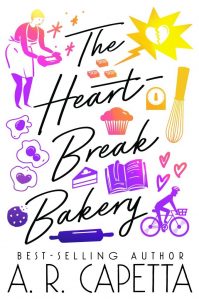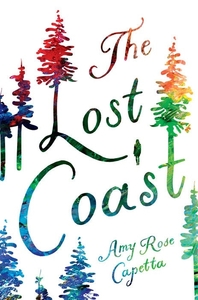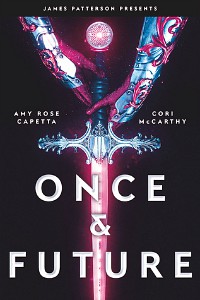Amazon Affiliate Link | Bookshop.org Affiliate Link
This is where I use the wishy-washy definition of which books the Lesbrary covers (books about a main character who “doesn’t identify as a man and is at least some of the time attracted romantically and/or sexually to others who do not identify as a man”) so that I can talk about a book I love and think you will too, even though it’s not sapphic. This is a YA magical baking romance between an agender main character and a genderfluid love interest, which is just as good as it sounds.
This follows Syd, who works full time baking at the local queer bakery, The Proud Muffin. When Syd’s girlfriend breaks up with Syd seemingly out of nowhere, it’s crushing. Syd funnels that pain into baking, the same way Syd deals with everything. Except that it soon become apparent that everyone who eats Syd’s breakup brownies breaks up, including the owners of The Proud Muffin. Now Syd and Harley, the bakery delivery person, are on a mission to track down everyone who’s been a victim of broken-hearted brownies and find a way to fix it.
If that premise doesn’t grab you, we do not share the same taste in books! This delivered on exactly what I wanted from it–except that for some reason I thought this was an adult romance, and I’m still not quite sure why it is YA? Syd has special permission to have a full time job and complete high school classes, but I’m not sure why Syd wasn’t just out of high school for this story… but that’s a very minor complaint!
I really appreciated the reexamining of Syd and W’s relationship. At first, Syd is stunned by the “sudden” break up, but after some time to process it, realizes there were cracks in their years-long relationship for a while. W is the villain. I really enjoy Capetta’s writing, and part of that is the emotional complexity in their work. No one feels one-dimensional.
This book is so celebratory of queerness and queer community. People check Harley’s pin for their or his pronouns every day. Everyone is so accepting and kind, even in difficult moments. (And even if they express that a bit differently!) The bakery is almost entirely queer people, including an aro/ace character. There’s a polyamorous brunch! This is a bit of a spoiler, because it happens at the end, but I have to mention it any way: there’s a big gay Texas bake off! “Sure, but what makes this a bisexual babka?” It feels like a big queer hug. In fact, I was overcome with cute aggression after finishing it and had to suppress yelling and shoving it random passersby’s hands. “READ THIS! IT’S SO GOOD.”
The magic is a fabulist undercurrent, a metaphor made literal. Syd puts emotion in baking, whether intentional or not, and that’s received by the people eating it. It’s a nice way to think about sharing food. Another fun aspect was that there are recipes between chapters, both literal (like for the brownies) and more metaphorical. The fantasy aspect also means this book is part magical quest, part queer bakery romance.
I took this out from the library, but I gave it 5 stars and can’t wait to get my hands on my own copy for my collection. If you’re looking for a last-minute queer-affirming gift, this is a fantastic choice!



